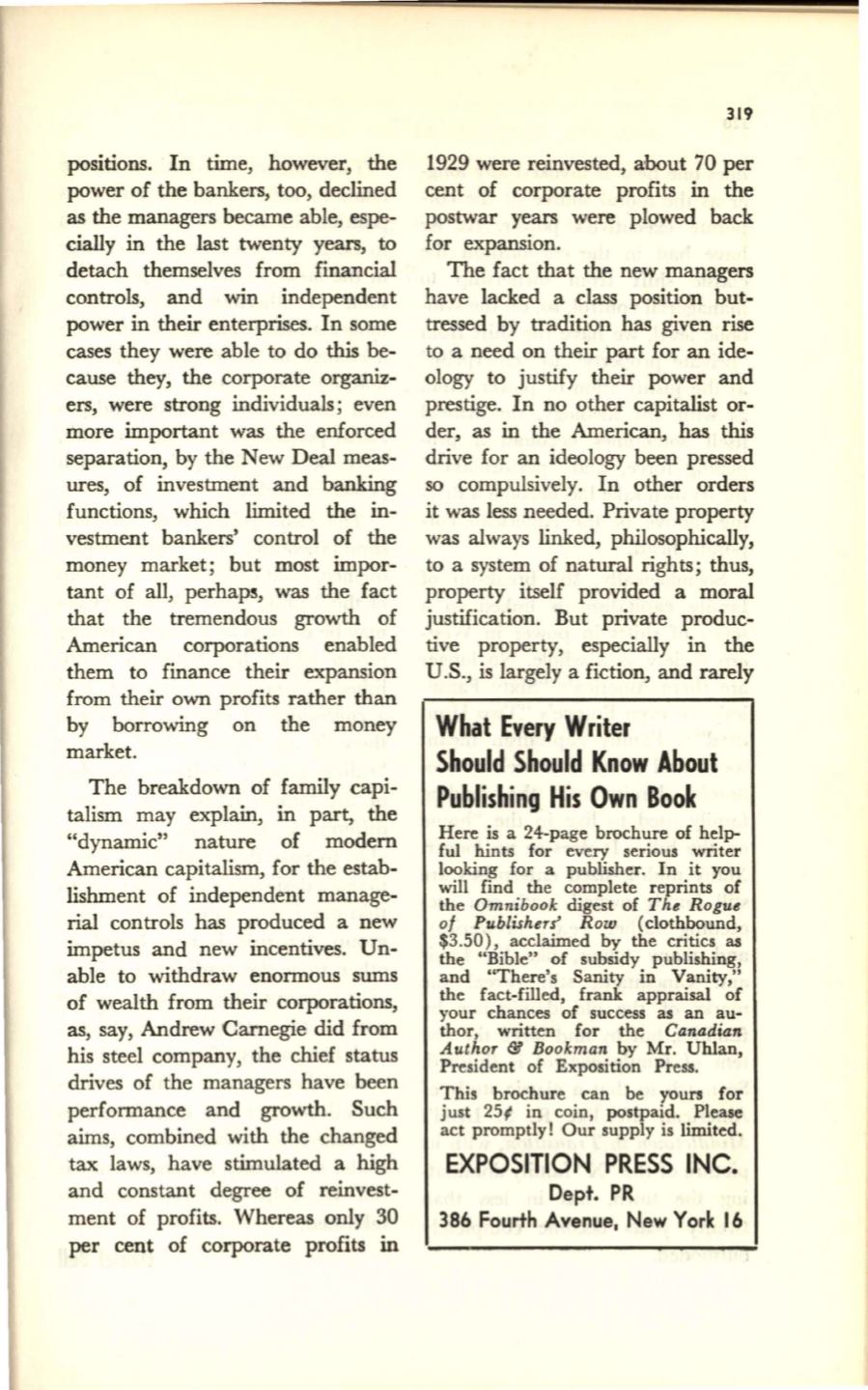
positions. In time, however, the
power of the bankers, too, declined
as the managers became able, espe–
cially in the last twenty years, to
detach themselves from financial
controls, and win independent
power in their enterprises. In some
cases they were able to do this be–
cause they, the corporate organiz–
ers, were strong individuals; even
more important was the enforced
separation, by the New Deal meas–
ures, of investment and banking
functions, which limited the in–
vestment bankers' control of the
money market; but most impor–
tant of all, perhaps, was the fact
that the tremendous growth of
American corporations enabled
them to finance their expansion
from their own profits rather than
by borrowing on the money
market.
The breakdown of family capi–
talism may explain, in part, the
"dynamic" nature of modem
American capitalism, for the estab–
lishment of independent manage–
rial controls has produced a new
impetus and new incentives. Un–
able to withdraw enormous sums
of wealth from their corporations,
as, say, Andrew Carnegie did from
his steel company, the chief status
drives of the managers have been
performance and growth. Such
aims, combined with the changed
tax laws, have stimulated a high
and constant degree of reinvest–
ment of profits. Whereas only 30
per cent of corporate profits in
319
1929 were reinvested, about 70 per
cent of corporate profits in the
postwar years were plowed back
for expansion.
The fact that the new managers
have lacked a class position but–
tressed by tradition has given rise
to a need on their part for an ide–
ology to justify their power and
prestige. In no other capitalist or–
der, as in the American, has this
drive for an ideology been pressed
so compulsively. In other orders
it was less needed. Private property
was always linked, philosophically,
to a system of natural rights; thus,
property itself provided a moral
justification. But private produc–
tive property, especially in the
U .S., is largely a fiction, and rarely
What Every Writer
Should Should Know About
Publishing His Own Book
Here is a 24-page brochure of help–
ful hints for every serious writer
looking for a publisher. In it you
will find the complete reprints of
the
Omnibook
digest of
The Rogue
0/
Publishers' Row
(clothbound,
$3.50) , acclaimed by the critics as
the "Bible" of subsidy publishing,
and "There's Sanity in Vanity,"
the fact-filled, frank appraisal of
your chances of success as an au–
thor, written for the
Canadian
Author
&
Bookman
by Mr. Uhlan,
President of Exposition Press.
This brochure can be yours for
just 25; in coin, postpaid. Please
act promptly! Our supply is limited.
EXPOSITION PRESS INC.
Dept. PR
386 Fourth Avenue. New York 16


